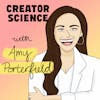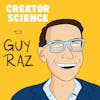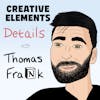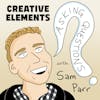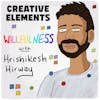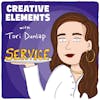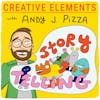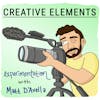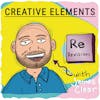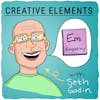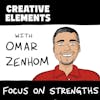
#119: Omar Zenhom – Lessons from 200M downloads and 2000+ episodes of a daily podcast
Play EpisodeOmar Zenhom is co-founder and host of the award-winning The $100 MBA Show, which consistently ranks as a top business podcast in over 30 countries and has over 200 million downloads.
WATCH
▶️ Watch this episode on YouTube
***
EPISODE DESCRIPTION
Omar Zenhom is co-founder and host of the award-winning The $100 MBA Show, which consistently ranks as a top business podcast in over 30 countries and has over 200 million downloads.
As a former school teacher for over a dozen years, Omar decided to apply his natural passion for teaching and learning to the business world. Now, through The $100 MBA Show and his software company, WebinarNinja, Omar has made it his business to help others learn, teach, and grow as entrepreneurs – every single day.
In this episode, we talk about the numbers behind the $100 MBA podcast, his strategy for growing the podcast, his process for publishing a daily show, and why you should really focus on your strengths when you’re getting started.
Full transcript and show notes
Subscribe to the $100 MBA Show
Follow Omar Zenhom on Twitter
TIMESTAMPS
00:00 - Today’s Guest
00:37 - Omar Zenhom’s Background
01:50 - What We Learn Today
02:33 - How Being a Teacher Helps Omar Now
04:30 - The Turning Point In Omar’s Career
06:21 - Omar’s 1st Podcast Failed
06:50 - You Should Double Down on Your Strengths
11:43 - How The $100 MBA Show Became a TOP Podcast
16:42 - Omar Loves Helping Entrepreneurs
17:56 - Entrepreneurship is REALLY Hard
18:34 - How Omar Grew The $100 MBA Show
20:13 - How to Sponsor Other People’s Shows
22:03 - Most Effective Cross-Promotion Strategy
23:25 - More Strategies for Podcast Growth
25:33 - How Omar Approaches Audience Retention
29:19 - Does Omar Ever Make Repeat Content?
30:04 - Your Problems All Come From Your Head
32:52 - What it Takes to Make a Daily Podcast
37:05 - Why Omar DOESN’T Do Video
38:58 - How Omar Approaches Making a New Episode
42:43 - Storytelling is Everything
43:42 - How Leading a SaaS Company Impacts Omar as a Creator
45:37 - Documenting Your Process is VERY Important
47:24 - How to Help Listeners Navigate Your Catalog
***
CONNECT
🙏 Make a guest or mailbag request
📝 Check out our curated Playlists
***
SPONSORS
💼 View all sponsors and offers
***
SAY THANKS
💜 Leave a review on Apple Podcasts
***
PODGLOMERATE NETWORK
This show is a part of the Podglomerate network, a company that produces, distributes, and monetizes podcasts. We encourage you to visit the website and sign up for our newsletter for more information about our shows, launches, and events. For more information on how The Podglomerate treats data, please see our Privacy Policy.
Since you're listening to Creative Elements, we'd like to suggest you also try other Podglomerate shows surrounding entrepreneurship, business, and careers like Rocketship.fm and Freelance to Founder.
Learn more about your ad choices. Visit megaphone.fm/adchoices
Omar Zenhom 00:00
The funny thing is that when I look at my contemporaries, the people that started podcasts the same time I did, they don't publish anymore. You know, like I'm eight years in and over 2000 episodes in, and most people have quit along the way. And it reminds me of that line in Shoe Dog where he says the cowards have restarted the week have died along the way that leaves us.
Jay Clouse 00:21
Hello, my friend. Welcome back to another episode of Creative Elements. I've been producing this show since March of 2020. And since that time, I have published an episode every week without fail. Today's guest puts me to absolute shame. He has been producing a podcast for eight years now. And he publishes a new episode every single day. His name is Omar Zenhom. He's the host of the $100 MBA podcast, one of the top podcasts on the planet with more than 200 million downloads.
Omar Zenhom 00:56
Heyo, welcome to the $100 MBA show, helping you build a better business every single day with our daily 10 minute business lessons for the real world. I'm your host, your coach, your teacher, Omar Zenhom.
Jay Clouse 01:08
The show offers short practical episodes to help you start grow and launch your online business. And believe it or not, that all comes easily to Omar because he has been teaching for a long, long time.
Omar Zenhom 01:19
In my former life, I was a high school university teacher for 13 years I taught English as a second language. You know, I taught five classes a day. That's what I did for a living. That's what I did every day before I moved into full time entrepreneurship but a decade ago, and then before that, you know, while I was teaching, I was kind of side hustling and learning entrepreneurship on the side.
Jay Clouse 01:38
Omar made the transition out of the classroom and began learning from other legendary entrepreneurs. And it didn't take long for him to start the $100 MBA.
Omar Zenhom 01:46
The reason why I started a podcast is because I heard a speech from Seth Godin back in the day and he said that one of the easiest ways to be successful in business is to be famous. And he said it kind of tongue in cheek but really, for me, it was kind of like I need to grow an audience. I really need to speak to people, you know.
Jay Clouse 02:03
And while most podcasters like me are busy interviewing guests, Omar decided to lean into his strengths that he picked up as a teacher.
Omar Zenhom 02:10
I realized, okay, maybe that can be my differentiator where I can just focus on providing people with enough information for them to implement something today.
Jay Clouse 02:20
Now, believe it or not on top of publishing a daily podcast, Omar is the founder and CEO of a software company called Webinar Ninja. One of the most popular webinar platforms for coaches and creators on the Internet. In this episode, we talk about the numbers behind the $100 MBA show, we talked about Omar's strategy for growth, his process for publishing a daily show, and why you should really lean into your strengths when you're just getting started as a creator. I'd love to hear your thoughts on this episode. As you listen you can find me on Twitter or Instagram @jayclouse tag me, let me know that you're listening. I love to hear it. If you're here on YouTube, hit subscribe and leave a comment down below. That's enough of me. Let's dive in. Let's talk to Omar.
Omar Zenhom 03:14
Everything that I feel like I feel comfortable in, that brings me joy, that I feel I have some level of success involves teaching of some sort. Even the podcasts I teach on the podcast or you know, with webinars, I actually created the software just so to make my life easier when I teach online. So that's really how I kind of feel most comfortable or identify myself with. Yes, I'm an entrepreneur. Yes, I love business and all that kind of stuff. But I would say that's probably what makes me a bit unique.
Jay Clouse 03:43
A lot of my family are teachers. And what has always struck me is that teachers by nature, are public speakers, like every day, you're speaking in public and nobody talks about that. And I meet so many teachers who their number one fear they'll tell me is public speaking. But it's such a strength and such a gift having that practice is. Have you thought down similar lines or have you noticed that or is that a skill that you realize you cultivate in the classroom?
Omar Zenhom 04:08
Totally. And when I was in education and my teaching days, one of the things I was specialized in is I used to be a teacher trainer, I trained teachers and my specialization was classroom management. And people don't realize how hard it is to get like 30 people to do what you say. I mean, forget about listening to like just to actually follow orders and instructions. And there's an immense amount of pressure on a teacher because they have basically X amount of hours to instill new skills, to install new skills basically into people's brains so they can pass an exam. And if none of you will pass, then you're going to look like you're not doing your job. So it's a lot of pressure and you have to have for planning, you have to have good organizational skills, you have to audit diplomacy. You got to use guilt to guilt people to doing things, you got to use all kinds of stuff you got to, you got to be, you're really crafty. So yeah, I definitely take a lot of skills I bring on, I brought on or that I learned from teaching into my life as an entrepreneur.
Jay Clouse 05:11
You started Webinar Ninja and the $100 MBA basically at the same time between April and August of 2014. To give some context, can you hit some of the highlights of the last nine years or inflection points that stand out to you in the trajectory of those things? I was going to take them one by one, but I imagine they probably intertwine quite a bit. So I'll leave that to you as to how you would want to define some of those inflection points.
Omar Zenhom 05:34
I would even go back a little bit before that when I left teaching in 2012, I moved to New York with my now wife and partner in business to Cole and I absolutely felt like that was like the turning point in my entrepreneurial career because this is the first time no one gave me a schedule to follow or instructions or, you know, paid me a steady paycheck. You know, what does it Mr. Wonderful says like, the two most addictive drugs is like cocaine and a steady paycheck. So like, so I was on my own, and I had to figure out how to make a buck and, and be creative and all that kind of stuff. So I started a small like kind of business consulting firm, where I basically built WordPress sites and help people to branding and things like that. And that was just to make some money. And along the way, I wanted to kind of create my own products and and, you know, Hunter Ombria came about, for me, with a podcast, I probably would say the podcast is my favorite or my baby when it comes to my favorite accomplishments, because it was a gateway to door to a lot of opportunities for me, you know, I get invited on stages because of the podcast, I, you know, get to be on shows like this, I have a chance to reach an audience so I can have a software company. So if I'm being totally honest, in a lot of ways, if it wasn't for the podcast, I wouldn't have a lot of the things I have today or the opportunities I had along the way. A lot of people don't know this, but my first podcast is a total flop. And that was a big, you know, learning and or inflection point for me, because basically, boiled down to the fact that I was trying to be something I wasn't the podcast was was fine, you know, is an interview podcast. And we tried to get some really great guests. And we did we had like people like Jordan Harbinger and Gary Vaynerchuk. And it was nice. But you know, it wasn't really moving the needle, it was just another mean to podcast, and it didn't have me in it. Like, you know, I didn't really infuse my own experience. And I was, you know, on a road trip and Nicole and I, to do a gig and we were thinking to ourselves, like, oh, man, like, why is this not doing well? And, you know, we started to realize, you know, we're not really leveraging our strengths are not really, you know, we got honest with ourselves, we actually looked at the top podcasts in business, we saw people like Tim Ferriss, and, you know, Pat Flynn from Smart Passive Income, and Jordan Harbinger. And all these people like have been podcasting since like, you know, Jordans been podcasting before the iPhone, you know, like, how am I going to compete with these people, if I'm just, you know, repackaging another kind of style thing, and just trying to be just trying to hang with these people, you know, so I realized I should be teaching on this podcast, because I probably am a better teacher than everybody else here because I was a tape train teacher and I have a master's in that subject. And I know I have all these certificates you have to do as a teacher over and over to, to kind of level up. And I'm a big believer that, you know, we all need a little push every day, doesn't matter how successful you are. You can get jaded, you can tired and get burnt out, you need something to kind of keep you going for me. It could be a book, or it could be on a Big Jim Rohn fan, I listened to Jim Rohn just pumped me up, you know, it's not like earth shattering information. But it's a good reminder that like, you know, you're capable of more than you think. So that was a big kind of turning point for me where I realized, okay, I need to do that. And then, you know, once we made that change, and we launched the $100 MBA show, it really kind of changed things for us in a big way.
Jay Clouse 09:01
Can we talk a little bit more about this, this idea of looking at your strengths, taking inventory of them and saying, am I even playing this through because I've been thinking about that a lot lately, too. Even if you do something, and it's new and novel, sometimes there are people who have a greater strength in that thing that you just did, and it's not necessarily even defensible for you to continue to do that, because they'll come in and just do it so much better. So I've been thinking to myself, you know, what is the thing or things that I can uniquely do and get better at over time? So that my advantage compounds to, but I'd love to hear about how you took stock of this.
Omar Zenhom 09:35
I think some of us think it's not enough. Like it's not like I have, you know, my thing is not that special. And I always give this example you know, like, let's say I wanted to be a travel blogger, okay. I love to travel about you know, I don't have any travel blogging experience, any of that kind of stuff. Right. And I wanted to start focusing on one country to start with, right, I want to be the expert at one country first. Say, Hey, if you want to come to this country, this is this is what you should know. Right? My favorite country is not Egypt. It's not. But my parents are from Egypt. They emigrated from Egypt to America. I was born in the States, but then we would go back in the summer to visit Egypt every summer, you know, if I had a choice to get a free plane ticket somewhere, Egypt would probably be number 19, or something like that, right? You know, my favorite country is Japan. I'm passionate about Japan. I think it's incredible. I love to snowboard there. And the food is amazing. The culture is so unique and all that kind of stuff, right? So I always say, like, try to focus on what how much value you can add. And that's really your strength, like, where can you add the most value in this area, or in this subject or in the genre you're in? I probably can't add the most value as passionate I am about Japan, I probably can't add the most value. I don't speak Japanese. I don't you know, understand how the roads work there and how to, you know, can you haggle? Can you not all that kind of stuff. So like, I'm not entrenched in that culture, Egypt. On the other hand, maybe I don't love it that much. But it's where I can add the most value. I've been there over a dozen times I speak the language, I know where to go and not to go, I know where the tour straps are, I could tell you where to get a great authentic meal, all that kind of stuff just because my parents took me there. And I understand that what's going on. And, you know, I might not be so in love with it. But that's really my strength. And sometimes we don't want to lean into our experiences, we don't want to lean into the things that we know for sure. Our true are really good at because we think it's mundane, and it's boring, and all whatever. That's my past. You know, I was a engineer. Now I want to be a life coach. No engineers are your help, buddy, you know, like, focus on what you had experience in. And that's really where you can add the most value.
Jay Clouse 11:41
Yes, I was recently researching an interview I did with Sahil Bloom. And he had this throwaway comment he made on the Nathan Barry podcast we talked about the most valuable thing on Twitter right now is earned insight. And I think that applies to like anywhere people want to create content right now, earned insight is a thing that other people can't replicate from you, you know, it's the reason that some people are just showing up on like an Andrew Hume Bourbon shows up on the scene and is immediately everywhere. It's like, how did he do that? He has some of the most ridiculous earned insight, like ever, and he's incredibly good at recalling it. So I love this idea of where can I add value? Where do I have unique experience, and that is something that I can share with people and be uniquely different. I love that idea. So you were at 2014, you start the $100 MBA podcast, I've heard you say that it pretty quickly got noticed by Apple was a new and noteworthy for like eight weeks, which got you off to a really fast start, I think you said about 10,000 downloads per episode, when that happened. What happened over the next nine years, was it just up into the right the entire time, or were there any other major inflection points in that journey?
Omar Zenhom 12:45
You know, podcasting is a little bit of a black box, people don't really understand like, how does this all work? How do you actually get good at it? Like how do you become successful? How do you rank high? How do you all it's, it's all a little bit of a mystery. But I kind of just saw the show as any kind of show that would be on TV or or you know, something on Netflix or whatever, where at the end of the day, if your content is good, if you can cultivate an audience, if you can use that content to market the show, then you're going to be alright, if you just hang on long enough. You know, I really believe in just like sticking to something and the funny thing is that when I look at my contemporaries, that people that started podcasts the same time I did, they don't publish anymore. You know, like I'm eight years in and over 2000 episodes in, and most people have quit along the way. And it reminds me of that line in in Shoe Dog. You know, the autobiography, Phil Knight, Phil Knight, there it is Phil Knight, the founder of Nike, where he says the cowards ever started the week have died along the way that leaves us and I love that line because it reminds you like, just stick around long enough and you'll be okay. Now I know that sounds like very simplistic. But yes, you know, you have to be consistent. You have to publish, you have to make sure like my goal is to get better every time I get in front of the mic. How do I how can I deliver better, even just as a quote unquote, performer on the mic. You know, I took voice lessons, I took public speaking lessons. I got a coach, I was trying, I took it seriously really I was like, I'm part of the media. Now I need to be media ready, you know. And on top of that, I was like, How can I grow my show? How can I get people more people to know about it? You know, whether it's through ads, whether it's through marketing, whether it's through getting on other podcasts like this, because people who are listening to this show right now, they're already sold on podcasts. They're already listening to podcasts. So if they're interested in what I have to say, and they want to listen to me more, they'll check out my show. So it was just that consistently and just making it part of my my system just make it part of my day. So you know, I try to get as many podcasts as possible. I try to get them three to four a month. A lot of our marketing goes into marketing the show and just trying to improve the show as much as possible. And what I found Um, there's a little lesson that I learned in teaching that I feel like it really applies to business. And podcasting. Anytime you need to earn trust with somebody, you know, you really need to understand. And this is like kind of a value that teachers know. And it's, you know, students don't care about how much you known to show them how much you care, they don't really care, like you can't really affect them until they really see that you have their best interests in mind. So one of my goals on the podcast is to build that trust with my audience to show them that, hey, I really care about your success, I have your best interests in mind. You know, I might be a little bit tough love sometimes. But I don't want you to fall into those traps and spend $2,000 on those, you know, crappy programs that don't do anything, I want you to, to realize that as much as you want to hear this, actually, these three books are going to help you read these three books over the next three weekends, and you're going to actually be ahead of most people. And that's really what I tried to instill in the show is that if if people feel like I'm trying to actually help them, and I really care about them, and it's not just some kind of show to, you know, get listens and sponsorship and things like that, then that's all it really matters, because without the listener, we don't really have much.
Jay Clouse 16:11
I can't believe we just got a Nike Phil Knight quote while you're wearing an Adidas track jacket.
Omar Zenhom 16:17
I'm sorry, i'm sorry.
Jay Clouse 16:18
Are we gonna get in trouble?
Omar Zenhom 16:20
Thanks. Thanks. I'm a big Nike fan though, shoes wise, I don't wear it in my Nikes.
Jay Clouse 16:25
After a quick break, Omar and I dig into his analytics and what he has done to grow the show over time, and later we talk about Omar's process for publishing a daily show. So stick around we'll be right back.
Jay Clouse 16:37
Welcome back to my conversation with Omar Zenhom, not only is the $100 MBA show a top 10 Apple podcast, but it has been downloaded 200 million times. That is a huge, huge number. So I asked Omar to break down some more of the analytics behind the show.
Omar Zenhom 16:53
We get between 125,000 and 130,000 downloads per episode, our goal by the end of the year is to get closer to 150,000. The hard thing about this is that not only do you need to bring in new listeners, but you also got to keep the ones you have. So it's something that we're really working hard on. Just because I actually really I know that I don't want to sound like I'm beating on my own chest. But I actually believe that the show really helps a lot of people. And I only say that because of the emails we get the reviews that we get people have built their whole business, just listen to the podcast, that's the biggest reward of all, because I struggled a lot when I started learning about business and starting my side hustles back in 2002. I mean, this is before WordPress was prevalent, or, you know, PayPal, and there was no way to kind of get out a merchant account or like, have a transaction on your website. And it was super hard. And and actually the the most popular resources out there online, were the people that you would call a call scammy or you know, in our marquee swarming people, right, I would have to take what's good and leave the band, and just kind of like, oh, whatever, I got to deal with it. Because that was that was available, those $2,000 courses that were out there, and books. So I just felt like I really wanted to help people kind of navigate business. Because one of the things that I just tweeted about this, but a lot of people talk about this, this stuff is hard, man. Like, there's a reason why not everybody's an entrepreneur. It's super hard. And yeah, people need to know that. Not to scare them lay, but so they don't feel like an idiot. So don't feel like they're dumb, or they're deficient. You know, when I started I felt like there's something wrong with me. Is this supposed to be this hard? And and no one told me, you know, like, I think people didn't know like, yeah, it's okay, if it's hard. That's how it's supposed to be.
Jay Clouse 18:35
I kind of like trying to scare people away and telling them that it's hard because you kind of have to be like, well, I don't care, I'm gonna do it anyway, in order to be successful, because if I can scare you away by telling you that it's hard, like you're welcome. I just saved you probably like so much time and pain. Alright, so if the podcast went from, like 10,000 downloads per episode in the beginning of it after new and noteworthy to 125,000 today, if we zoom out and look at that, that graph, has that been fairly linear or were there any types of like major inflection growth points?
Omar Zenhom 19:02
I would say that we would have some, some some kind of rush of growth, and then it will plateau then a little bit more. And that's because, you know, we won Best of iTunes and 2014. And then that put us basically on the cover of iTunes, this is before Spotify was on podcasting. So if you listen to podcasts, we're on the front page. So it really helped us a lot. We got featured a few times on on on the app on the front page a couple of times and then just just attraction that we would get from PR like you know, Forbes writing us up or pass company or inc or you know, entrepreneur those kinds of give us a bump and then get new listenership I think after like two years, I realized okay, I can't rely on these I have to create my own buzz I gotta you know, try to sponsor the podcast and I learned a lot of this actually from my buddy Joe Jordan Harbinger Jordan Harbinger is like a beast podcaster he's got one of the top 30 podcasts of all podcasts in the world and he He's taught me a lot about how to market and grow your show. And that's all he does. And that's what I love about him is that he just focuses on his show. And he's just super super, you know, focused on that. So that's kind of, you know, it would bump and then we go up, and we'll kind of plateau and we're trying to, you know, force a bump now.
Jay Clouse 20:19
I'm also trying to force a bump now constantly trying to force a bump. And I've circled around this idea of, yeah, I just want to sponsor other people's shows. And I'm finding that it seems to be an incredibly manual process. Do you have a shortcut for me?
Omar Zenhom 20:35
So there are two ways to do this, in my opinion, one is more effective, the other one's less strenuous, the most effective way is actually you personally reaching out to your contacts. And that's how I kind of can get as many quality sponsorships as possible. Or I'll reach out to somebody I know, like, you know, Nathan Berry, Hey, man, can I sponsor something you're doing or I to Justin Jackson or something like that, like, you know, you're into podcasting world. So people that you've built a relationship over the years, that's easy to get? Yes, they're the trust is already built, they know that you're worthy of the spot. And it's just, it's just easier to kind of actually negotiate a winwin and a better deal. The other way is, you get some help you get a VA, you get somebody to kind of run through the courses of like finding out what are the best podcasts that would be a good fit for you, this is going to take some sort of taste and some sort of skill to be will do that. So I'm like anybody can make that decision. And then from there, I just literally cold email all of them. And, and I tried to personalize each email, we've tried to actually get the VA to do it, we tried to, you know, get somebody else to write the email. But it just doesn't get answered, it doesn't get converted, at least they can recognize my name and their inbox, if they know the show or something like that, I find that you still have to do some manual work and to kind of reach out to people. The other option, if that's the probably the most expensive a fastest option is to go with an agency like midroll, or Sirius XM FM, there are agents, we use them for our sponsorship for our show. And they'll they'll basically say how much you want to spend? And they'll just give you some options.
Jay Clouse 22:14
Do you find that if you're doing like a cross promotion with another show, is it more effective for you to read the ad for the $100 MBA and put it on someone's show or is it more effective for that host to talk about the $100 MBA and put that in there show?
Omar Zenhom 22:29
The latter for sure. Unless your business has to do with some sort of compliance reasons. And you need to make sure it's like verbatim and, you know, like when we have sponsors like that, it's usually like American Express or some like that. So otherwise, if you don't have any of that kind of issue, which is most of us, especially if you're just promoting a podcast, then I would definitely get the host of the show to read it and to try to maybe use their own personality, their own humor even make fun on themselves or you in the process. If you guys are buddies, you know, or pals, so yeah, I definitely say that.
Jay Clouse 23:03
Okay, so cross promotions, you mentioned being a guest on other shows. I'm thinking about doing some guesting swaps for this show. But my, my holdup is I don't want to suddenly have like a string of five straight months of just podcasters on the show.
Omar Zenhom 23:18
Yeah.
Jay Clouse 23:19
So it's tough for me to think through like, well, how do I manage that, but I can I can figure that out.
Omar Zenhom 23:26
I mean, the exchange could be something else it could be it could be email marketing, it could be you know, social media, it could be, you know, if they have a physical store or a billboard, whatever.
Jay Clouse 23:36
So these are these the way that you have a push the the bumper, the shows, is there anything else that we're missing that you learned from Jordan or otherwise, because obviously, we'd love to get featured in these things. But it seems like our options are kind of limited otherwise to doing these, like promos and guest swaps and things.
Omar Zenhom 23:50
It has to do with the content itself. So I always say that, like you're only as good as the last show you've made set. Because you don't know when somebody's going to discover the show. And they might jump into an episode that's not that great. So you got to try your best to make sure every show is as good as the other one. The other thing is that your first minute is incredibly important, because this is where they're making a judgement. They're judging you literally, they're listening to your episode, and they're saying, should I listen to the show is going to be worth my time I break this down. And when I speak on stages about podcasting, I actually break down my first minute of the podcast and it's it's basically a broadcast clock where I just, I purposely try to put as much information and what's in it for them as soon as possible. In fact, I do my pre rolls after that. I don't do a payroll sponsorship at the top of the episode, I actually do it. After my minute of power is what I call it my first minute where I basically they know what's in it for the episode and I say basically, you know, we're gonna do all this stuff, you know, and I actually have a line that says, Today you will learn so they have explicit understanding of this is what you're gonna learn today. And we go through where you're gonna learn in the intro, we go into a pre roll and then we come back and we go into the lesson. So for me, that's super important because Is if somebody's discovering me if I'm running an ad, and they're, they're like, let me check out the show. I want to hook them as fast as possible, because otherwise, they might just be like, oh, this is boring. This is just a bunch of ads or they might be like, oh, they're waffling. Personally, I'm a very kind of like to the point person, and I track those kinds of people, where it's like, I can't help as a teacher to go to a conference or see somebody on stage or see a webinar and be like, get on with it already. Like just kills me. I'm like, What are you talking about? You're just like, wasting my time or and it's been 20 minutes with you know, exactly. So for me, that's really important to podcasting.
Jay Clouse 25:37
You mentioned a second ago that for your growth goals to go from 125 to 150. That doesn't just mean getting new listeners, but it means keeping the ones that you have,
Omar Zenhom 25:45
Right.
Jay Clouse 25:45
Podcast analytics terrible. What do you do to measure retention? How do you know if you're keeping the ones that you have?
Omar Zenhom 25:52
I kind of do a general kind of assumption when I kind of see how the numbers are trending, how many people are dropping off in terms of like, is it going up and down like this episode got like 120, this one got and I won 19. And this now it's a 118. Okay, it looks like I'm losing some people, all that kind of stuff. So one of the things that I tried to do on the podcast to try to keep people is understand that I have a catalogue of 2000 episodes or lessons as we call them. So I often try to reference these lessons to get them to go back and get more value, because maybe what I'm talking about today is over their head, and I say, hey, you know, if you haven't listened to Episode 1942, where we talk about, you know how to set up, you know, the choices for payment processing, you should check out that episode and I go into and I kind of go call back as much as possible so that not only do you listen, today's episode, or they go back and listen to episode first come back to this episode, I get a couple more listens, I get a couple more. I know it sounds very little, but onScale, it makes a big deal. When you reference these things. It also helps when you have sponsors that relate to an episode, that's not your current episode that you're on. So like, you know, say, for example, I have an HR software that is a sponsor, and there's an episode where we talk about how to make your first HR hire, then I'll reference that so it makes sense with the read. So again, those callbacks really help. The other thing I try to do is I get them to we have a segment every Wednesday called q&a Wednesday's, where I get them to email me a question. I encourage people to do this because it not only helps them with an answer, but also helps everybody who's listening who have a similar issue or problem. And a lot of these are very common, you know, like things like, Am I too nice to be an entrepreneur? Like that's a really interesting question, you know, where people feel like they've been walked over because they they're, you know, maybe give a little tuna leeway, or maybe they give too many chances. So I tried to get keep it as engaging with the audience as as possible. We run some contests sometimes and giveaways and things like that. So yeah, I don't wanna get well, my secrets Jay. But those are those are all I got right.
Jay Clouse 27:58
When we come back, Omar and I talk about how he's come up with more than 2000 ideas for podcast episodes over the last eight years, and we even dive into his specific process for publishing a daily show. So stick around. We'll be right back.
Jay Clouse 28:13
Hey, welcome back. When I look at Omar's back catalogue for the $100 MBA show and see more than 2000 episodes, I begin to ask myself, do I even have 2000 things worth saying? So I asked Omar if he ever feels like he's repeating himself?
Omar Zenhom 28:29
No, because I change the challenges I face change, you know, who I am, as an entrepreneur is totally different than I was when I started the podcast, you know, the things I care about the things I value, you know, how I spend my time, the advice I would give kind of changes over the course of time, not not that the advice was invalid back in the day, it's just that it was valid for where I was, and who I believed was listening to me at the time and, and all that. So the other thing is, is that like showering, we need to do a daily, right, you know, we we have to be reminded we need to be also sometimes you don't get it the first time. This is why when you read a book, sometimes they drill hole point, chapter after chapter is because it's like, Ah, I didn't really think of it that way. You know, and I'm a big believer, I know, this may sound a little woowoo here. But this is just from my experience. Most of the problems we have in our business and our life just all comes from our head. It all comes from our mentality or mindset. And a lot of people use the word mindset, I actually don't like the idea of mindset, because it doesn't really paint really what I'm trying to communicate. Really what I mean is what you believe, because we only do what we believe, right? If you believe that you love pizza, then you're going to eat pizza, right? If you believe that it's you know, bad luck to do something, then you're not going to do that. Right? So if you believe a certain thing in your business, then you're going to do something according to that belief. So in order for you to change things in your business, you have to change what you believe in. You got to change how you think about something and some time times it doesn't click in one example or one, one topic, and I have to take it a different angle. So people could be like, Oh, okay, I get it now, like, you know, if I, if I don't help people, or I don't correct my teammates, when they make a mistake right then and there I called just in time learning, then they'll never know they're doing something wrong. And it's really not fair when I fire them, because I never give him a warning, or I never show them how to do it, right. So like, all that kind of stuff is really important to me. Because at the end of the day, you can learn anything, you can learn how to do any kind of skill, you can learn how to code, you can learn how to sell, you can learn how to market, you can do all that kind of stuff. But at the end of the day, what's going to compel you to do that? It's what you actually believe you could do.
Jay Clouse 30:39
I love that, we're gonna get more snaps on that one because I've been thinking a lot lately. You know, we watch these Netflix documentaries on Theranos, or WeWork or Annadelle V, and we're like, how could they possibly do these things? And the answer is, they believe that they could, and you know, when you're talking to yourself, like, how am I not able to do this thing? It's because you believe that you can't, you know, it's like the single most powerful, if you have it, it's so empowering. If you don't have it, it's so limiting. Belief is incredible.
Omar Zenhom 31:09
Yeah.
Jay Clouse 31:10
And I don't think we talked about it out.
Omar Zenhom 31:12
I think one, I'm gonna give a little life hack here. And this is gonna sound a little bit weird, but I really think it's actually quite powerful. Go on holiday with somebody that's a little bit above your lifestyle, like go to go on holiday with a friend that maybe is making, you know, 50k more than you a month, or I'm sorry, a year, or is a little bit ahead of you in business. And just see like, this is your possible future, what's possible, and see how they spend, see how they act, see how comfortable they are what worries them what they talk about, you start to realize, oh, this is where I'm aspiring to be as possible. I'm seeing it right in front of me, I need to up my game, you know, I need to do something about this, like you start to take action after that holiday, you know, so even if the short weekend or something that I really think is a huge life hack is just like go vacation with somebody who's just like a little bit ahead of you.
Jay Clouse 32:01
So good. I want to understand what your workflow looks like to maintain a daily podcast over this period of time, can you walk me through a typical week of producing this?
Omar Zenhom 32:12
I'm not alone, I have a team around me. So let me just outline the team. So it's me who I'm in charge of basically, the curriculum or the content. And the recording on the host of the show. We have Carl, who's our production engineer, does the editing masters the sound, you know, creates the mp4, mp3 files, we then have Nicole, who's our producer, who's my co founder, she basically makes sure everybody does her job, she manages the sponsorships, she makes sure that you know, things get published on time, all that kind of stuff. We have our production assistant Romina she is the one who puts it all together, you know, publishes the WordPress, you know, kind of blog posts in the show notes and make sure the files are being published properly. And they'll hyperlinks work and all that kind of stuff. And we have Connor who's our content writer who writes the show notes, who writes all the creatives writes all the social media stuff. We also have Cindy who's in marketing who she she creates all the you know, Instagram reels and all the you know, little snippets and takes all the content that that Connor writes and makes it into something that's really nice on social media and our newsletters and things like that. So it wasn't always like that my first six months, my first 300 episodes, basically even, I would say up to 300 episodes, it was just me and Nicole, we did everything we and this is a huge advantage because we knew what it took to publish and and run this podcast, so that we can train other people. And we actually created you know, standard operating procedures wrote everything down so that we can hand it over to somebody else. And we just hired one by one first we had an EA and then we had a you know a writer, then Carl jumped in and started editing Nikolas to do all the editing herself. So like, I'm not saying this is where you start. This is where we are eight years later. But now, because I run a software company, I had to build a team around me so that all I do is I focus. Once a week, I create the topics for the next, you know, two or three weeks, I outline these topics in terms of what I want to cover. Sometimes there's a few bits that are like they're important points I want to make. So I will script it a little bit so that it's concise. If you don't understand how powerful scripting is because oh my gosh, I love I want to be I only have 10 minutes, I gotta get to the heart and I can't waffle on I can't just like say something that you know, could take one sentence when you know if I waffle is gonna take three sentences. So. So that's one part of my week. And then the second part of the week is I step up to the mic and I record my booth, and I batch all my recording. So I'll probably do three or four episodes in a row and then I'll do another day like that. Then from there, I just pass it on. We have basically a to do list in Basecamp. I mark you know recorded and then I pass the file to G Drive and Google Drive to Carl, who then edits and then when he edits, he tells Romina Romina then tells Connor Hey, we actually so So Carl listens back Romina listens back economy listens back to the episode. So if there's any mistakes, if there's problems, my reads on sponsorships, you know, sometimes I'm tired sometimes, you know, and somebody will catch it. And then from there, we'll we'll publish the episode and schedule it and make sure that it's all ready to go.
Jay Clouse 35:23
That's so helpful. Because I think a lot of people hearing this, they, without thinking too deeply, they think, okay, so I'm writing and recording a podcast episode every day. That sounds exhausting. But what you're describing is, you outline in batch, you script in batch, you record in batch, and then the rest of your team gets to produce in batch. How far ahead do you think you are at any given time?
Omar Zenhom 35:44
Three to four weeks, just because you know, you can get sick, you need to go on holiday, things like that. So try our best to keep that leeway.
Jay Clouse 35:52
I also love scripting very recently, we just started posting the video episodes of the show. And I can't script as much as I used to. Because like for ads, for example, I've got to look at the camera. I've got to deliver this, I got to perform it. And I suppose I could get a teleprompter. But I feel like something gets kind of lost with a teleprompter. Unless you're incredibly good at using a teleprompter, which I'm not.
Omar Zenhom 36:15
Yeah.
Jay Clouse 36:15
What has kept you from doing video?
Omar Zenhom 36:18
I'm a big believer that you need to kind of double down and focus on something, one, because in order for you to get traction, you know, like, I don't believe I would have you know, the growth or the success that I had with the show if I did the podcast and then a year later I said, Okay, let's do you know, I don't know, tick tock or YouTube or something like that. Like, I only have a certain amount of time, I am the person who's delivering the content. I rather have, you know, a number one business podcast show on podcast and like iTunes or Apple podcasts, then be number 200. And have like, I don't know, 20,000 subscribers on YouTube. To me, I just rather dominate one area. The other reason is that it's a craft. It's like me saying I want to be great at you know, Jiu and volleyball. Like there's two different skills here. So when I'm podcasting, I'm there's a certain skill set I'm trying to improve at, I'm trying to be better on the mic. I gotta be better at communication and enunciation, pausing for a fact, all that kind of stuff, having all these different tools in my bag and utilizing them all the time. And getting better at it. If I if I turn my back on it, unfortunately, I'll never be you know, that championship judo player. I'll just be a mediocre Judo guy, and I'll be a mediocre volleyball guy. So that's kind of how I see it. I could be wrong. I'm always I always say this, I could be wrong, because it's possible. I'm wrong. But that's what I believe. And that's what I do.
Jay Clouse 37:48
I feel like some of the biggest opportunity for people entering it today is actually doing shorter form shows. And it could be even, you know, less than 10 minutes. You look at what Ryan Holiday is doing with the Daily Stoic.
Omar Zenhom 37:59
Or Naval.
Jay Clouse 38:00
Or Naval. I'm curious for your process when you sit down to put together an episode. Can you walk us through how you approach that blank page?
Omar Zenhom 38:08
Yeah, one of the things I learned in teaching is in order for somebody to learn a skill or to learn anything, they have to comprehend what you're saying. But they also have to retain it. If I can't retain it, I can't repeat it. Just like remember, when you learn long division, in order for you to do the homework, you'd have to learn the steps of carry the one and all that stuff. You have to remember the steps. If there's too many steps, there's too many topics. There's too many themes, you'll walk away from it just like sometimes you walk away from like a keynote speech and be like, that was good, but I don't really remember anything. Like I don't, I don't I didn't really, I didn't walk away feeling like something changed inside me. You know, and I know that sounds grandiose. But it's better for you to keep things short, keep things specific, and really go deep in it. Because I believe that every topic of my podcast episode is a promise. Right? My topics are a promise, somebody who read it, the title of my podcast episode, they think they're going to learn this when they listen to this podcast, if I don't deliver on that, then there's a good chance they're gonna lose trust with me, they're gonna say this person is a huckster in order to increase my likelihood of fulfilling the promise, I need to get specific, so that I can actually, you know, improve that one little area and for them to walk away and feel like, okay, I think that will work. I'm going to implement that that really helped, you know, and that's really what I'm trying to do here. That's really the challenge I go through every time I create an episode where I say, what is that one thing I want them to learn? Whether it's a mind shift, mind shift thing, or maybe it's a practical thing they can do in their business, whether it's like, you know, pruning their email list, how to do that, and a few steps, just all that kind of stuff. So I just tried to say what is that one little thing? I want to walk away and say, I got it. And then I work backwards. I say how many steps how many things do I need to do to get there? Sometimes what happens is I realized, oh, man, This is gonna take eight or nine steps, I gotta get more specific, the topics not specific enough. So because it's just getting too big. So that's kind of how I work through it. And then from there, I just figure out how can I deliver this in a way that just makes sense for them. And one of the biggest pet peeves I have as, as a teacher, and teacher trainer, when I see other people teach, or, you know, give a workshop or webinar or whatever, is they don't contextualize things. Like one of the things that we all should be using is examples. You got to use an example for everything I say, I have to give an example, if you notice, I've talked about the judo guy and talked about all these examples I'm giving is because, unfortunately, if somebody who's listened to a topic that's new to them, they don't have the context. So I gotta move that that lesson and put it into a different context that they may be familiar with. I try to pull out what are real examples, whether it's examples in the marketplace, like oh, you know, for example, a good example of a company that does this is XYZ, you know, you see that they do this in this ad. Oh, yeah, you're right, they do do that, you know, so just to take them out of it for a little bit. And then I bring it back to the topic. So that's just comes from my teaching days, it comes from me trying to put it all within 10 to 12 minutes. And, you know, make sure that it's it's concise and compact. I also don't want it to be boring. And one of the things people don't realize that it makes something boring, is when they don't have enough mic drop moments when they don't have enough moment. You. Yeah, and just like, that's what makes a great stand up bit where it's like, every bit is great. Every, the whole set is just back to back. laughs right. So the same thing I'm trying to do with my podcast, but with education is that they like, Oh, that was good. Oh, my God, I can't believe why don't I listened to this podcast before, that's experienced one and a half. So that all happens before I even get on the mic.
Jay Clouse 41:55
Pacing, storytelling. I'm thinking so much about storytelling lately. And it sounds almost trite. But I feel you get to a point where you realize like, oh, everything just kind of comes down to storytelling, which doesn't make sense until you've had like that switch flipped in you I feel. like people can hear that and be like, what are you talking about? That sounds like crazy high level garbage but it's important. And when when I've done some LinkedIn learning courses, and I worked with an editor on that, and they were very strict that anything that I said, like, give me an example. Because not only does it help people understand it and a new way and give them a better lens. But it also proves that you're not bullshitting, you know? Because if you can't give an example, then like, how do I even know and trust that this is a real thing that you're telling me?
Omar Zenhom 42:37
Right.
Jay Clouse 42:37
That's so good, that's something I wanna produce in every content.
Omar Zenhom 42:38
It's also a way for you to infuse humor, you know, if you want to your examples are a good way to add a little of your personality, you know, even if it's self deprecating kind of humor, that's fun but it changes things up a little.
Jay Clouse 42:53
I didn't get to talk really at all about the other side of your life with the SAS company, I would love to know, you know, running the SAS company, Webinar Ninja, how has that impacted you as a creator?
Omar Zenhom 43:05
So one of the things I realized over the years about running a software company is there's so much out of your control. Like when you run a software company, it's, it's, it's so different than being a creator and publishing your own content and writing your own books or blog posts or YouTube channel or whatever it is online courses, there's so much in your control, there's so much in your realm of influence where you can make this successful. There's so many, so many ways that you can even iterate to make it successful. But you're so reliant on so many other factors. When you're running a software company, whether it's your team, or your engineers, or the market or the customers or what's happening externally outside of your space. There's a lot of things that you can't really for lack of a better term, like, predict, you know, you so in a lot of ways, it humbles you. It makes you feel like wow, like I before I thought you had the Midas touch. Now you're like, oh, man, like this is hard. Like, this is like a real business because like I have to manage people and I have to negotiate things and suppliers and vendors and trying to figure out like, what's the best way to be profitable and that it's really a tough business to run. I have to say software is not easy. I think a lot of people think that like, oh, it's like the the golden ticket and it's easy to kind of come up with some widget and you now you're making like, you know, million dollars a year? No, it's It's actually quite hard. I actually think e commerce is easier. I've run an E commerce business in the past. I always recommend to somebody who's starting entrepreneurship, for the first time is a service based business like agencies and service businesses are one of the best ways to stay profitable to grow to scale to learn the ropes of business, without too much risk. So yeah, I learned a lot of hard lessons along the way.
Jay Clouse 44:48
I've heard you talk about when running the SAS company, how well you document processes and things within the company so you can bring people in? How much does that carry over to the work you do on the podcast or otherwise as a creator?
Omar Zenhom 45:00
Totally, I mean, I love to share that kind of stuff. Because a lot of things I do in webinars, I learned the hard way, I spent a lot of time just trying to have learned from my mistakes. The thing is that a lot of people will talk about their, how they run their business. And in software, maybe you can relate because you're on Twitter with me, and all that kinds of people talk about the wins, they talk about, you know, oh, I got a new client. And then my IRR hit this level with my meter and all that kind of stuff. And no one talks about, like, how do you fire somebody? Like no one talks about that, like, you know, and I love that because that's awesome, untapped content that I share on the podcast, like, Hey, guys, sometimes you're gonna have to hire somebody, this is how I did it. You know, this is what works. This is what happens, you know, what about legally, what do you have to do about all that situation? You know, like, I'm not a lawyer, I'm not giving legal advice. But like, this is what I did to kind of make sure, you know, I was doing things on the up and up, you know, so I think that, that has helped me a lot, create a lot of great content, a lot of great, some of the great topics that we've come up with some of the most popular episodes we've had are on these topics, were just like, No one talks about, like, what do you do when somebody breaches security? They, you know, they let their cousin use your laptop, and now they're inside your intercom? Like, what, like, you know, talks about this stuff? Do you have a procedure for that? Do you have a protocol, if you have a CTO? Have they written now a security protocol for everybody in your team in terms of time authentification, or, you know, try to have some sort of VPN or whatever it is that you're using in your in your procedure? So, yeah, it's really helped me have a lot of great content.
Jay Clouse 46:35
You have one of the biggest catalogs of episodes that I've ever seen. And you're talking about growth, bringing in new people listen to the show, how do you help new listeners wayfind through 2000+ episodes? Where do they start? And how do they find their way through that without being overwhelmed?
Omar Zenhom 46:51
That's a good question. We're actually building a solution for that right now, we are going to be creating these starter packs on our website. So we'll refer the them to that page where it basically it's like getting started with marketing getting started with entrepreneurship, you know, your finances, and there'll be like the top episodes that we recommend us to get started with. This is something that we realized very recently, when people would ask like, hey, I want to get help on this. What do I do we have a search function on our on our website, but that that really doesn't help. And what we're doing instead is just creating playlists on Spotify, so that they can just listen to wherever they are.
Jay Clouse 47:26
That's something I've taken from Jordan Harbinger as well. Because I I don't have nearly the catalog you do, but still had the issue, which is somebody coming in, it's like, where do I start?
Omar Zenhom 47:34
But you, you're three years in. Yeah.
Jay Clouse 47:36
Yeah, but even 100 episodes, you know, it's like
Omar Zenhom 47:38
Yeah.
Jay Clouse 47:39
Should I go to number 1? Am I signing up for the next six months of this or, yeah, those playlists so if you're listening to this playlist, creativeelements.fm/playlists, where can people find out more about you or where do you like them to go after the show?
Omar Zenhom 47:52
I want them to go right now on their podcast player.
Jay Clouse 47:56
Please subscribe, I'm watching you.
Omar Zenhom 47:59
No, if I was any of value and you feel like I can help you in any way, in your entrepreneurial journey, you can go check out the $100 MBA Show. It's literally the dollar sign 100 MBA Show on your favorite podcast app, listen to a couple episodes see if you like, if you do to hit follow. I'd love to help you along your journey.
Jay Clouse 48:24
I feel like I learned so much from Omar in this episode that I can apply to growing this show so much great insight about marketing your show, serving your listeners and just sticking with something long enough that most of your competition gives up. If you want to learn more about Omar you can visit 100mba.net or webinarninja.com. Those links along with links to Omar social media handles are all in the show notes. Thank you Omar for being on the show. Thank you to Connor Conaboy for editing this episode and Nathan Todunter for mixing the audio. Thank you Brian Skeel for creating our music and Emily Clouse for creating our podcast artwork. If you liked this episode, you can tweet at me @jayclouse and let me know or leave a comment here on YouTube. I'd love to hear from you. And if you really want to say thank you, leave a review on Apple podcasts or Spotify. Thanks for listening. I'll talk to you next week.
Most Popular Episodes
New to the show? Check out some of our most popular episodes.






